Allie Long Needs New Key To New York After Hers Was Stolen In LA
You win some, you lose some ― that’s the case for World Cup soccer star Allie Long.
On Thursday, less than a week after helping the U.S. Women’s National Team to victory in the world championship, Long reported that her Los Angeles hotel room had been burglarized. She said the thieves got away with cash, her wedding ring and an honorary key to New York City that she had received the day before from Mayor Bill de Blasio.
Long and her husband stayed at the Ritz-Carlton hotel in Los Angeles on Wednesday night and left the door ajar for an hour while they were out. The couple realized the items were missing on Thursday, according to KABC TV.
A Los Angeles Police Department spokesman told People.com that investigators are interviewing witnesses and reviewing surveillance video, but there are no suspects at this time.
Perhaps assuming she’d never see her missing property ago, Long reached out to De Blasio for a favor: a new key. “Did you make copies?” she tweeted.
After the @ESPYS show someone stole my wedding ring, cash and the key to my favorite city after just receiving it from my hotel room. Do you make copies @NYCMayor ? I would love a new one.
— Allie Long (@ALLIE_LONG) July 12, 2019
Luckily, De Blasio was keyed into the situation: “Like any good New Yorker, we keep a spare for our neighbors!”
So sorry to hear it, Allie. Hang in there. Don’t worry about the key. Like any good New Yorker, we keep a spare for our neighbors! We got you covered. https://t.co/B5xqZPMZnU
— Mayor Bill de Blasio (@NYCMayor) July 12, 2019
This is the second non-soccer story involving Long this week.
On Wednesday, she ate a piece of paper from the team’s equal pay lawsuit after the World Cup championship parade in New York City.
Also on HuffPost
Love HuffPost? Become a founding member of HuffPost Plus today.
Wilma Rudolph, Sprinter, 1956 & 1960 Olympic Games
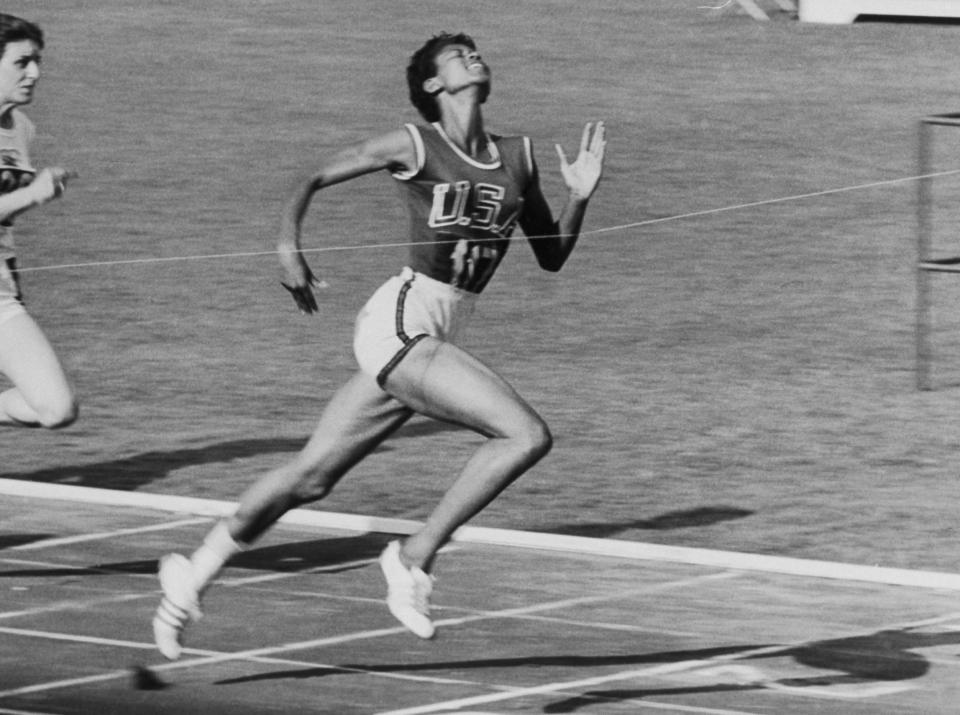
In the 1960s, Rudolph was considered "the fastest woman in the world" -- a feat made all the more impressive by the fact that she spent most of her childhood in leg braces. Rudolph suffered from polio as a child, and was fitted for leg braces after she lost the use of her left leg at age six. After years of treatment and determination, the braces came off -- and her sporting career began.
During the 1960 Summer Olympics, Rudolph won three gold medals in track and field.
"I don't know why I run so fast," she told ESPN during her heyday. "I just run."
Nadia Comăneci, Gymnast, 1976 & 1980 Olympic Games
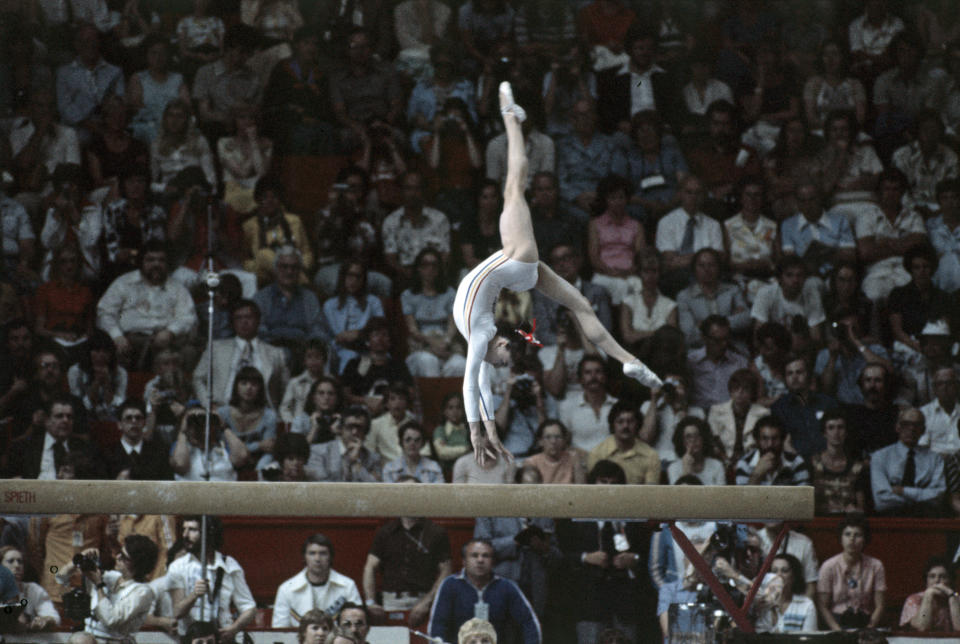
The Romanian gymnast won three gold medals at the 1976 Games. She was the first female gymnast to be awarded a perfect score of 10 in an Olympic gymnastics event for her routine on the uneven bars.
"You have to have a lot of passion for what you do," she told CNN in 2012. "To be able to work hard and to have a lot of motivation because you're going to go to places that you're never going to believe."
Alice Coachman, High Jumper, 1948 Olympic Games
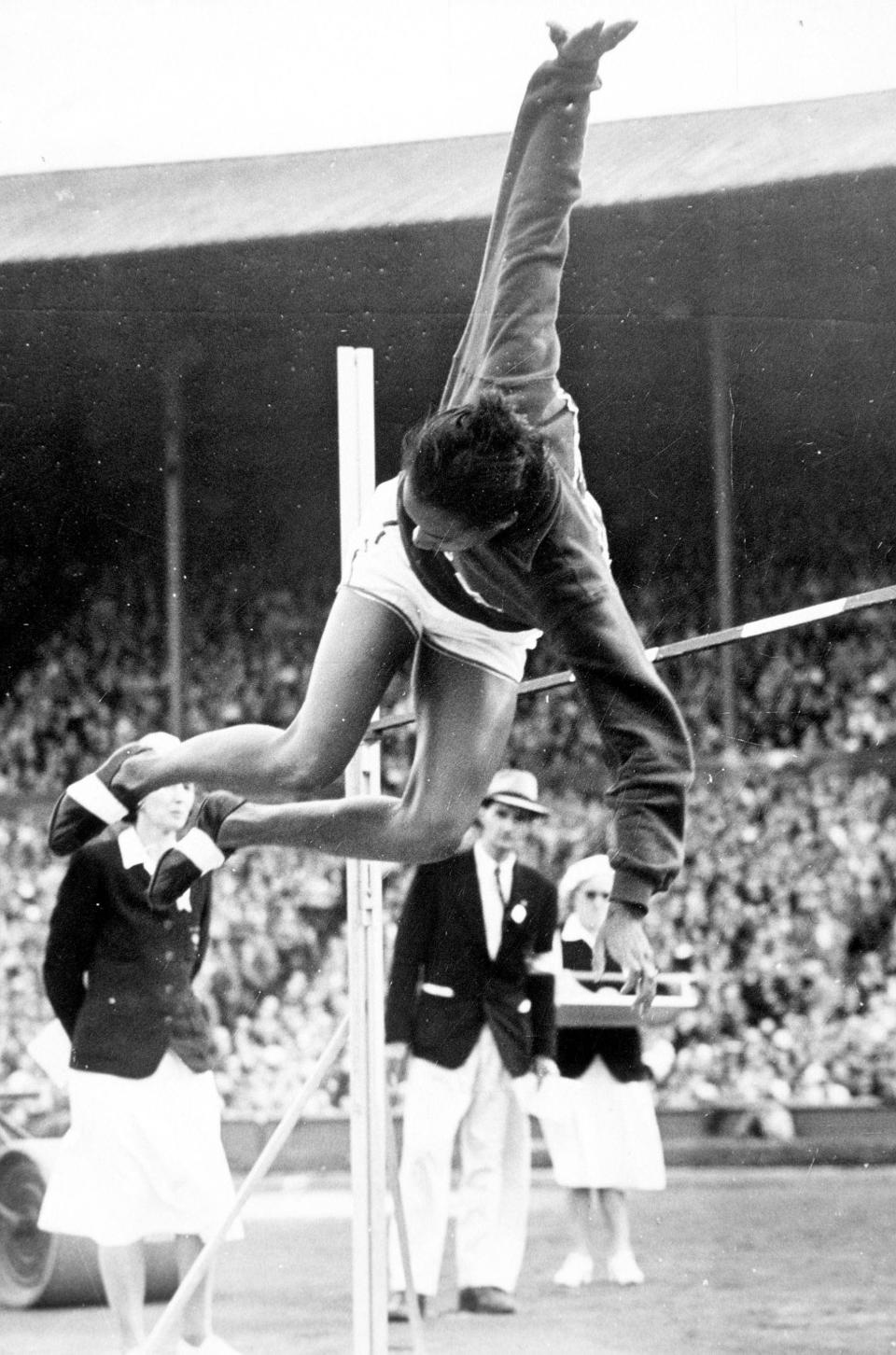
Coachman, a high jumper who grew up in the segregated South, was the first African-American woman to win an Olympic gold medal in 1948.
Coachman's father didn't approve of her initial training -- which involved practicing on a homemade high jump.
"He said, 'sit on the porch and act like a lady,'" Coachman told NBC in a 2012 interview. "But I didn't do that."
Fanny Blankers-Koen, Sprinter And Hurdler, 1948 Olympic Games
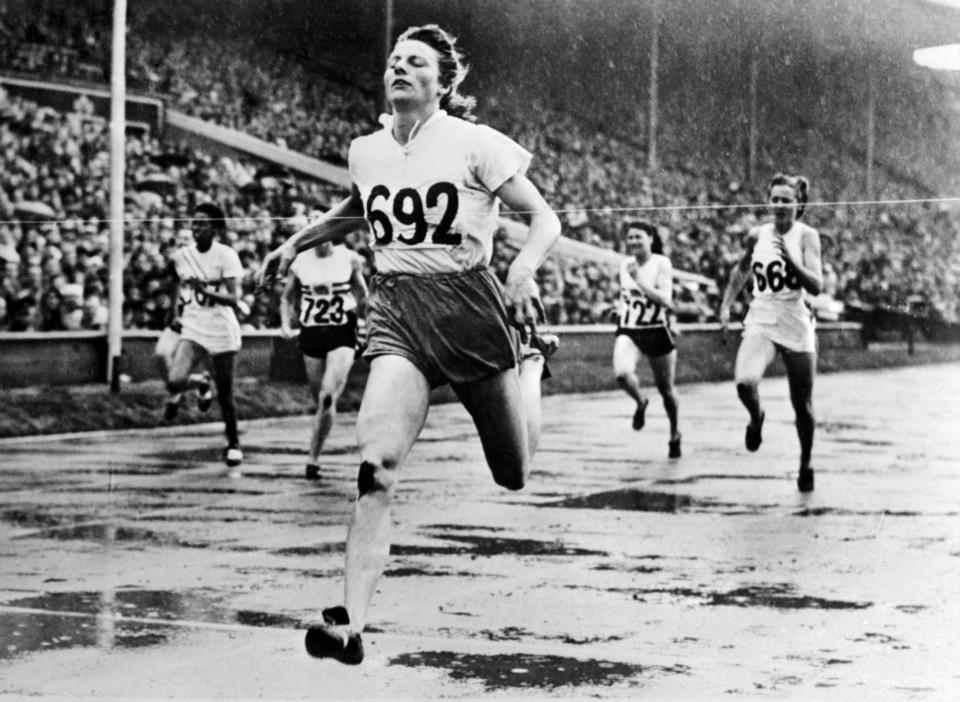
The Dutch athletics star won four gold medals in 1948. At the time, she was a 30-year-old mother of two, and was criticized for competing in the Games.
“I got very many bad letters, people writing that I must stay home with my children and that I should not be allowed to run on a track with -- how do you say it? -- short trousers,” Blankers-Koen told The New York Times in 1982. “One newspaperman wrote that I was too old to run, that I should stay at home and take care of my children. When I got to London, I pointed my finger at him and I said: ‘I show you.’”
Fanny Durack, Swimmer, 1912 Olympic Games
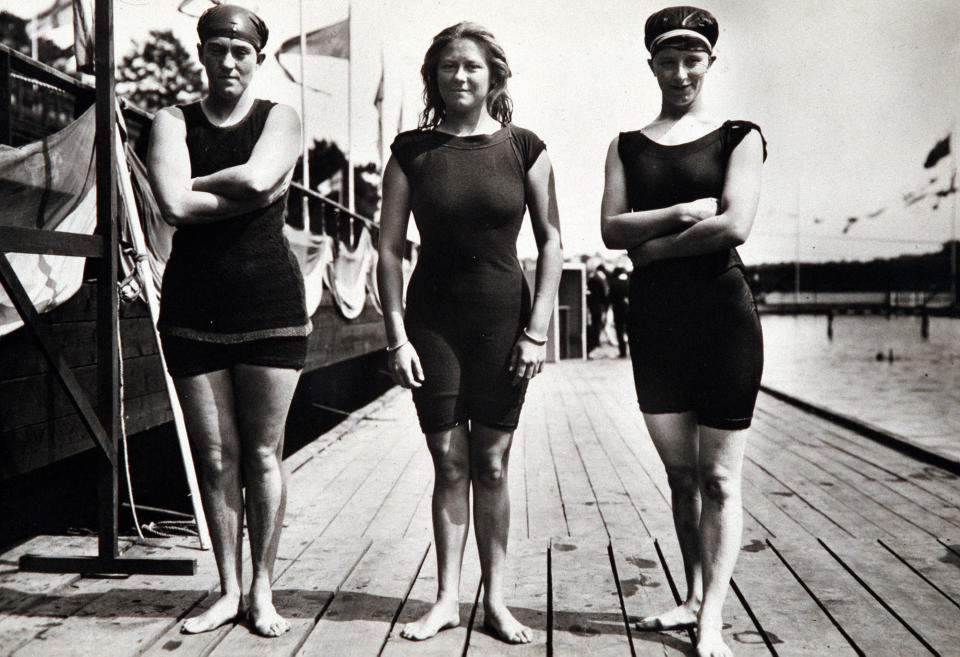
Durack (left), an Australian swimmer, won gold in the 100m freestyle at the 1912 Olympics.
Between 1910 and 1918 Durack was considered the world's greatest female swimmer of all distances between sprints and the mile marathon.
Helen Wills, Tennis Player, 1924 Olympic Games
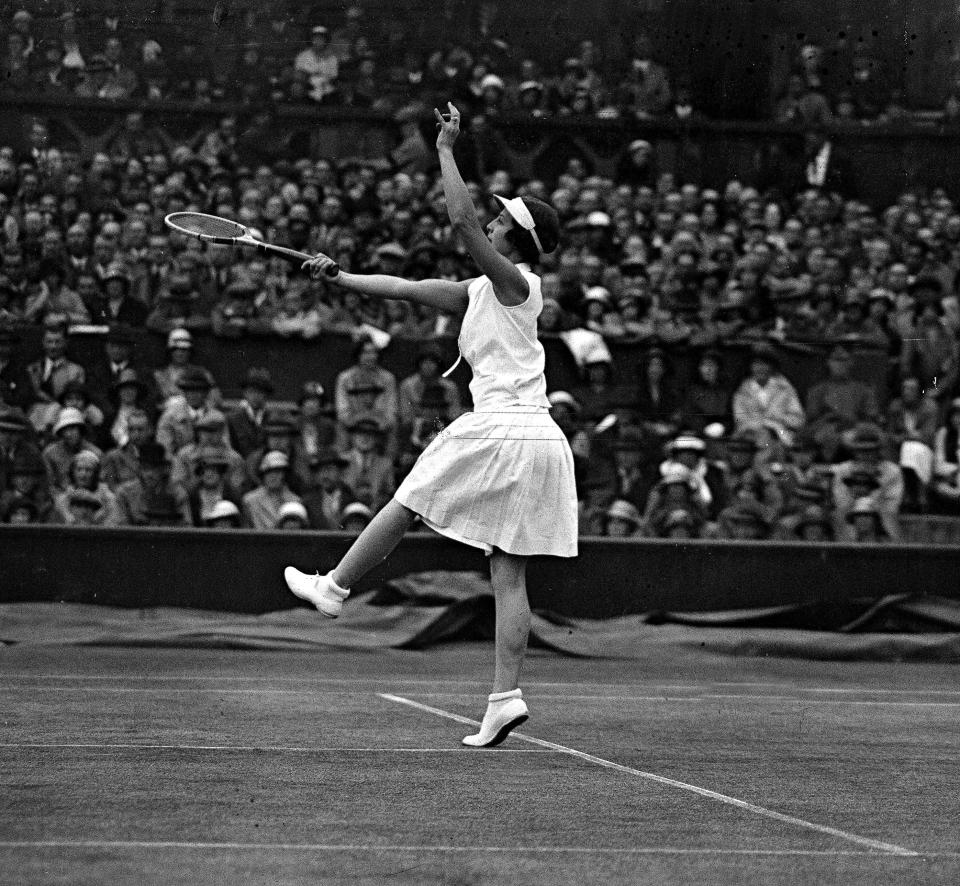
Wills, an American tennis player, took home gold medals in women's doubles and singles at the 1924 Paris Olympics.
Wills was largely considered "the first American-born woman to achieve international celebrity as an athlete."
Connie Carpenter-Phinney, Speed Skater And Cyclist, 1972 & 1984 Olympic Games
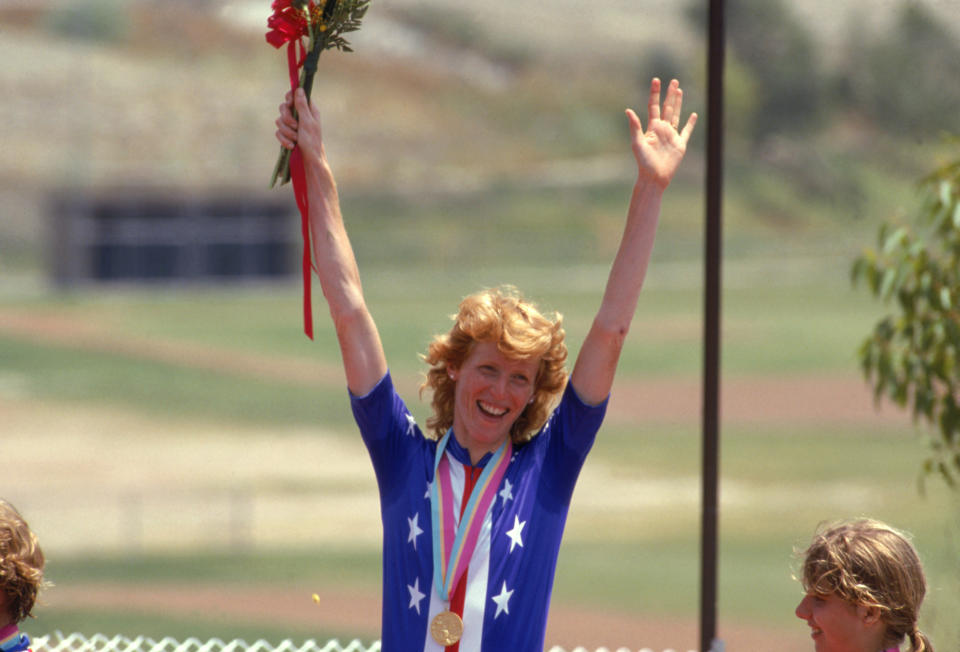
Carpenter, the first woman to compete in both the Summer and Winter Olympics, competed as a skater in the 1972 Games and won the gold medal in the cycling road race at the 1984 Summer Olympics.
"For me, it was everything, because I wanted to win the Olympics so badly," Carpenter-Phinney said of her win in a post-race interview. "That was the crowning glory of a long career, and it gave me the chance to retire on top."
Micheline Ostermeyer, Shot Putter And Discus-Thrower, 1948 Olympic Games
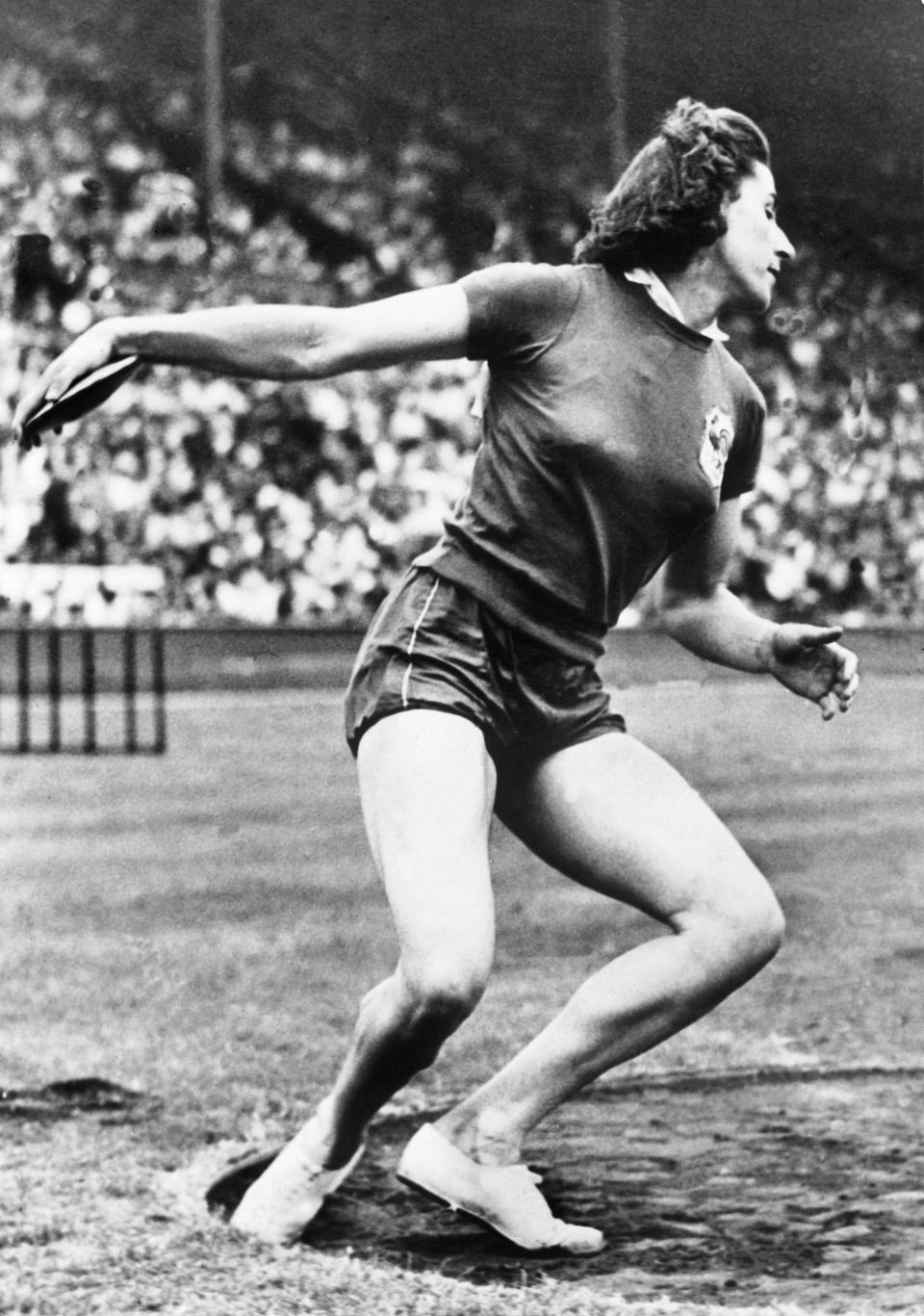
Mary Lou Retton, Gymnast, 1984 Olympic Games
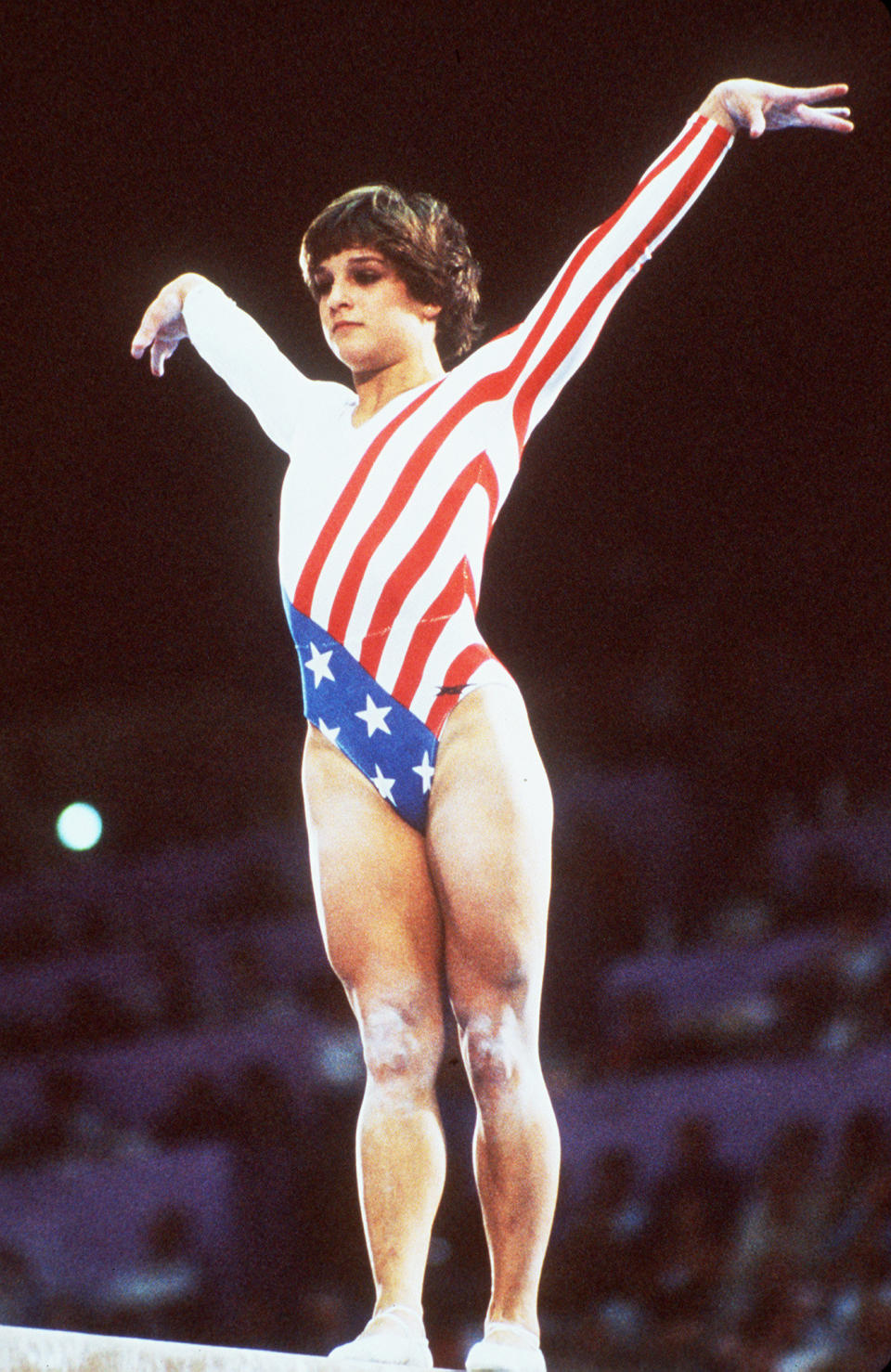
Retton, an American, was the first female gymnast not from Eastern Europe to win a gold medal in the Gymnastic Individual All-around competition. She won five medals total in the 1984 Games.
As a child, not realizing that competitive gymnastics even existed, Retton's ambition was to become "the finest cheerleader in the world."
"She always knew what she wanted to do," coach Bela Karolyi said in the documentary "Bud Greenspan Remembers: The 1984 L.A. Olympics." "She always had very set goals. And she was following her goals."
This article originally appeared on HuffPost.

